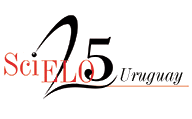John Banville’s Scientific Trilogy
An Mapping of Episteme Change through Literature
DOI:
https://doi.org/10.25185/6.10Keywords:
Scientific revolution, Literature, John Banville, Epistemology, Episteme, InnatismAbstract
The paper shows the power of John Banville’s trilogy, Doctor Copernicus, Kepler y The Newton Letter, focused on the scientific revolution, to analyze epistemologic processes. It is especially interested in some samples of famous epistomologic complex processes in the histoty of ideas: a) the epistemic transition from the Early Modern Period to Enlightnment; b) the epistemologic issues of historiography to rebuild the past with confidence, becoming a hard science; c) the controversy around innatism, which involved sir Isaac Newton and Thomas Hobbes. All reasoning developed in the paper is based on Banville’s trilogy.
Downloads
References
Banville, John. Doctor Copernicus. Londres: Picador, 1976.
Banville, John. Kepler: a novel. NY: Vintage, 1981.
Banville, John. The Newton letter. Londres: Picador, 1999.
Canon-Roger Françoise. “L’oeuvre de John Banville: une révolution de l’intérieur”. Études irlandaises, Hors-Série (1996). Irlande: espoirs: 27-37.
Dobbs, Betty J. T. Essays on the context, nature, and Influence of Isaac Newton’s Theology. Dordrecht: Kluwer Academic, 1990.
Ficino, Marsilio. Three books on life. Editado por Carol V. Kaske y John R. Clark. Tempe: Arizona Center for Medieval and Reinassance Studies, 2002.
Foucault, Michel. Las palabras y las cosas: una arqueología de las ciencias humanas. Traducido por Elsa Cecilia Frost. Buenos Aires: Siglo XXI, 1968.
Foucault, Michel. La arqueología del saber. Traducido por Aurelio Garzón. Buenos Aires: Siglo XXI editores, 1979.
Gámez, Carlos. Las ciencias y las letras: pensamiento tecno-científico y cultura en España (1959-2016). Vigo: Editorial Academia del Hispanismo, 2018.
Gentner, Dedre, Sarah Brem, Ron Ferguson, Philip Wolff, Arthur B. Markman y Ken Borfus. “Analogy and creativity in the works of Johannes Kepler” en Creative thought: an investigation of conceptual structures and processes Washington, eds. T. B. Ward, S. M. Smith, y J. Vaid, D.C.: American Psychological Association, 1997.
O’Donell, Mark. John Banville’s narcissistic fictions: the spectral self. Basingstoke: Palgrave Macmillan, 2013.
Kuhn, Thomas S. The structure of scientific revolutions. Chicago: University of Chicago Press, 1970.
Newton, Isaac. The principia, mathematical principles of natural Philosophy: a new translation. Traducido por I. Bernard Cohen and Anne Whitman. Berkeley: University of California Press, 1999.
Reiss, Timothy J. The discourse of modernism. Ithaca: Cornell UP, 1982.
Rupert Hall, Arthur. (2004) Newton versus Leibniz: from Geometry to Metaphysics. En The Cambridge Companion to Newton. Cambridge: Cambridge UP, 2004.
Westman, Robert S. “The astronomer’s role in the sixteenth-century: a preliminary survey”. History of Science 18 (1980): 105-147.
Wrethed, Joakim. Oases of air: a phenomenological study of John Banville’s science tetralogy. Stockholm: Stockholm University, 2006.
Zarka, Yves Ch. La décision métaphysique de Hobbes. Conditions de la politique. Paris: Vrin. 1997.
Published
How to Cite
Issue
Section
License
Copyright (c) 2019 Carlos Gámez Pérez, Juan Francisco Campo Echevarría

This work is licensed under a Creative Commons Attribution 4.0 International License.



























 This work is under a
This work is under a 